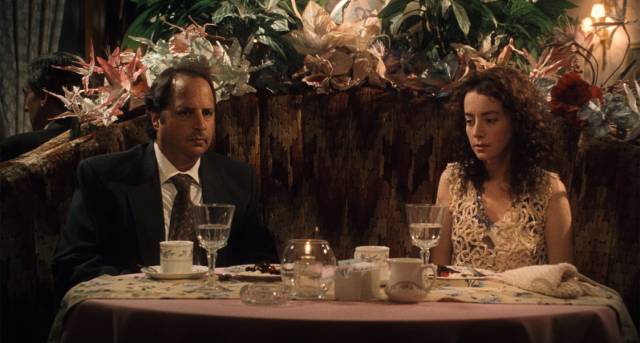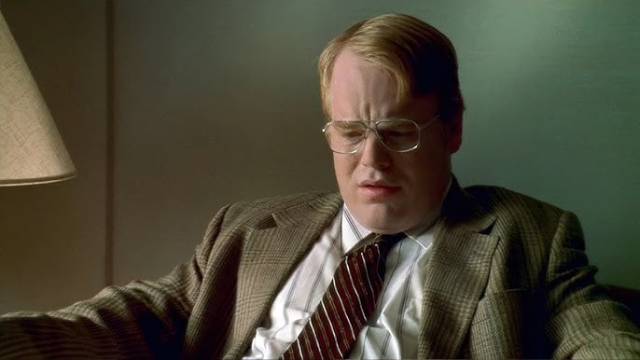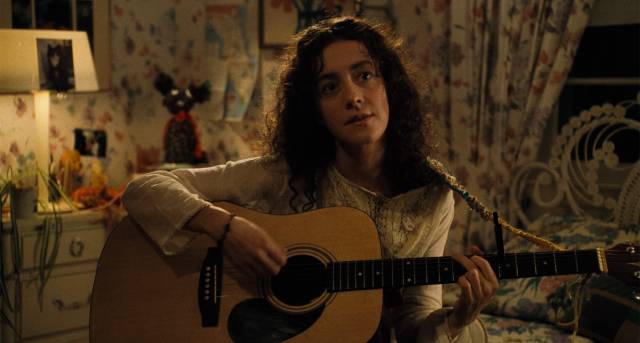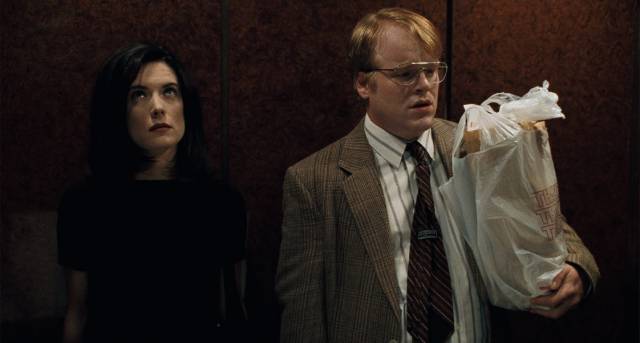Tod Solondz’s Happiness (1998): Criterion Blu-ray review

A quarter century after its original controversial release, Tod Solondz’s second feature remains unsettling; in fact, it seems impossible to imagine a film like this being made today. Social attitudes have shifted so much that what had been problematic is now virtually unthinkable. With “pedophile” now being the epithet of choice endlessly thrown at political opponents, the detached if not completely sympathetic portrait of a pedophile embedded at the centre of Happiness (1988) is extremely uncomfortable in its demand that the audience make a nuanced judgment of one of humanity’s most reprehensible expressions of sexual desire.
Back in 1998, it was this that caused the film’s original distributor – October Films, owned by Universal – to withdraw (it was taken over by Good Machine). But one of the many remarkable things about Happiness is that this thread is woven through a dense fabric of multiple narratives which are all almost as unsettling. Solondz’s view of the knots of sexual desire and their attendant anxieties is bleak, and yet he manages to frame the horrors with wit, each thread embodied in often touching performances from a superb cast. The film refuses to create any space for audience comfort and complacency. Like his first feature, Welcome to the Dollhouse (1995), Happiness is the epitome of the cinema of discomfort; but where the earlier movie was tightly focused on the pains of adolescence, Happiness broadens out to encompass all ages.

The family at the core of the narrative web consists of retired couple Lenny (Ben Gazzara) and Mona (Louise Lasser) and their three daughters – Helen (Lara Flynn Boyle), a successful writer; Trish (Cynthia Stevenson), a relentlessly perky suburban housewife; and Joy (Jane Adams), a would-be singer-songwriter struggling with dead-end jobs and failed relationships (the opening scene in which she rejects current boyfriend Andy [Jon Lovitz] in a restaurant sets an excruciating tone of social awkwardness which runs through the film). Spiralling out from these characters are an assortment of equally unhappy people. There’s Trish’s husband Bill (Dylan Baker), a psychotherapist conflicted about his own desires and plagued by fantasies of violence (his dream of massacring people in a park is another detail which now seems too close to reality for comfort). There’s Helen’s neighbour Allen (Philip Seymour Hoffman), an office drone whose insecurity has magnified sexual frustration to such an intensity that the idea of actually approaching a woman paralyzes him; so he’s taken to making obscene phone calls and fantasizing about rape. And across the hall from Allen is Kristina (Kamryn Manheim), an overweight woman who seems to be pursuing him, although she eventually reveals a very dark secret and disgust with sex.

Bill is Allen’s therapist, though his attention drifts as his patient drones on about being so boring that he knows no woman will be interested in him. Back in his apartment, Allen makes his calls and masturbates with unhappy desperation – was Happiness the first mainstream film to show semen explicitly as it splatters on the wall beside the phone? Allen uses it as glue to stick postcards and letters to the wall. Masturbation is a running theme in the film, a lonely act fraught with feelings of self-loathing. Bill’s eleven-year-old son Billy (Rufus Reed) awkwardly asks his father about ejaculation because apparently all the boys at school have accomplished it, but Billy hasn’t succeeded yet. Allen indulges compulsively, with both the phone and porno magazines. And, in the first indication of Bill’s deeper problems, he stops at a convenience store and buys a teen celebrity magazine which he uses as stimulation for a sudden, risky session on the backseat of his car in the parking lot.
As Joy quits her job at a call centre and takes a position as a strike-breaking teacher of English with a class of immigrants, which leads to a conflicted sexual encounter with one of her students, Russian cab driver Vlad (Jared Harris); and Allen makes an obscene call to neighbour Helen, only to be terrified when she reacts positively and starts calling him back; the film circles ever-closer to Bill and his forbidden urges. At a little league game, he’s struck by one of Billy’s friends, Johnny Grasso (Evan Silverberg), young and delicate looking. The boy’s own father (Dan Moran) uses the f-slur when he asks Bill after the game whether he should hire a hooker to straighten him out – and the feelings Bill has been trying to suppress are finally triggered.

When Johnny comes for a sleepover, Bill drugs his entire family and the boy. Solondz leaves no doubt what comes next although he discreetly fades to black and we next see Johnny having breakfast with Bill. The boy feels unwell and throws up his cereal. Bill takes him home, feeling better than he has in a long time. In fact, what he has done has made him feel physically relaxed with Trish for the first time in a while, his unbearable tension at least temporarily alleviated. But having broken this taboo, he can’t remain satisfied for long and when Billy mentions that one of his classmates has been left home alone while his parents are away on a trip, he drives to the boy’s house to take advantage of the parents’ irresponsibility.

Things escalate as Kristina goes on a “date” with Allen and, over a hot fudge sundae, tells him that she has been raped by one of their building’s doormen and that she killed him and cut him into pieces which she’s been gradually disposing of in baggies. But she hopes she and Allen can still be friends. Inevitably, Bill is exposed and visited by the police. In the film’s most painful scene, Billy tells his father that everyone at school is talking about what he did to the two boys and asks if it’s true. Bill, in a strange display of honest parenting, confesses everything and Billy is crushed that he could “love” other boys more than his own son.
The rawness of the performances here is almost unbearable – concerns about an eleven-year-old engaging in this kind of troubling scene aside – yet somehow Solondz’s calm, stylistically spare technique transforms something so monstrous into a comprehensible expression of recognizably human feelings. In fact, the entire film serves as a reminder of how much movies shy away from or sanitize what is generally inexpressible in polite society. It’s a remarkable balancing act, achieved by such a careful management of tone that what might have been nothing more than a catalogue of grotesqueries instead offers a glimpse of the way we all carefully curate the expression of our emotions and desires in our anxiety about being judged and rejected.

The title Happiness is obviously ironic, and yet the toast offered by Lenny to his wife and daughters in the final scene is nonetheless a recognition that the ability to survive all the complications and pains experienced as we navigate our way through life – and relationships – warrants some degree of celebration.
*
The Disk
Criterion’s edition of Happiness was mastered from a new 4K restoration from the original negative, with an excellent image. While the emphasis is on script and performances, Maryse Alberti’s cinematography gives a warmth and intimacy to the middle-class milieu which provides a solid grounding for the emotional and psychological turmoil.
The Supplements
There’s no commentary on the disk, but we do get a conversation between Solondz and filmmaker Charlotte Wells (a former student and assistant to Solondz) in which they discuss his practice, the risky subject matter, and the fraught process of filmmaking itself (40:49). In addition there’s an interview with Dylan Baker (13:52) about his approach to the tricky role of Bill (which had been turned down by numerous stars before it reached him) and Solondz’s way of working with actors.
There’s also a trailer (2:03) and a booklet with a piece by writer Bruce Wagner, which rather than offering a critical evaluation of the film instead talks about how it made him realize that he himself was not cut out to be a director.
Comments